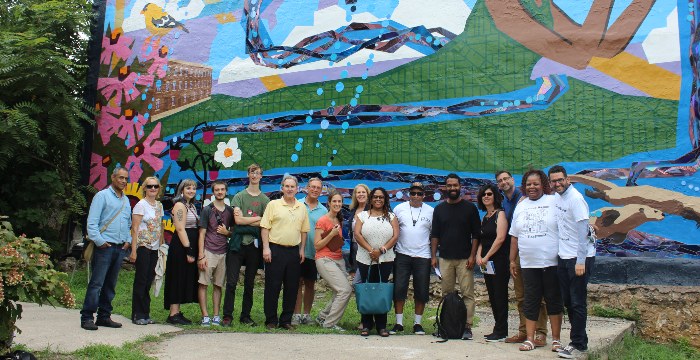
Our Green Economy Roundtable Recap
If you couldn’t make it to the Green Economy Tour and Roundtable event last Tuesday, no worries. We’re here to recap everything we learned from our visits to the Hestonville Rain Garden and Overbrook Nature Center, and even share some key takeaways from our rockstar panel!
Hestonville Rain Garden
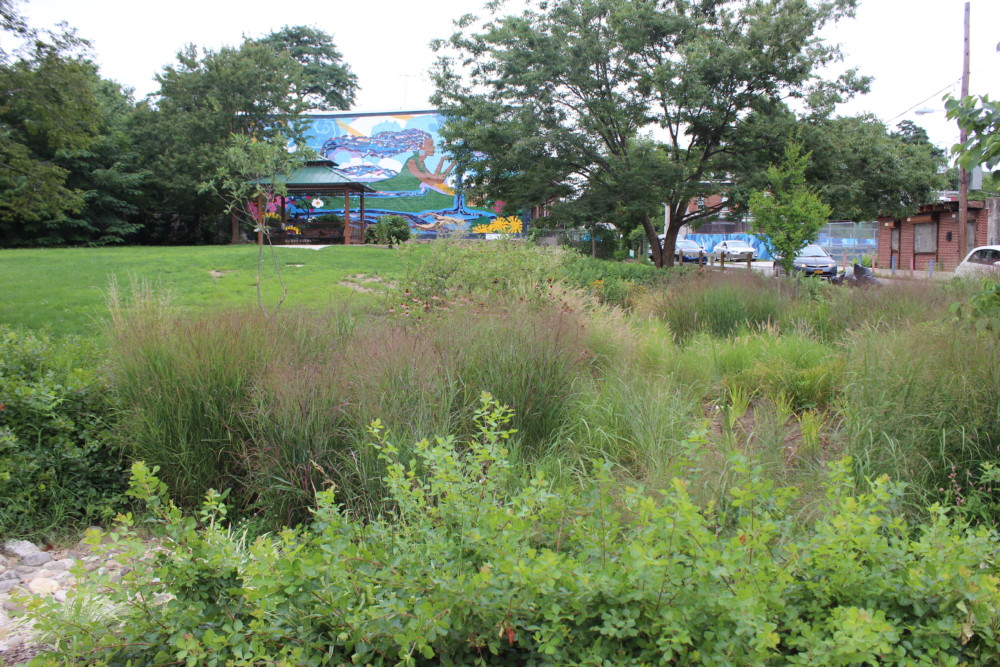
The first stop on our tour was Hestonville’s beautiful public park, located in at 55th and Hunter Streets. Transformed from a vacant lot in 2016, it’s now home to a mural by artist Eurhi Jones (read our profile on her here) and the Baker rain garden, engineered by the Philadelphia Water Department (PWD).
The Baker rain garden just one example of the green stormwater infrastructure (GSI) you can find throughout the city. Using native plants — like Black Eyed Susans and echinacea — the garden manages runoff, keeping it out of the combined sewer system and preventing overflows. This and similar tools are all part of PWD’s Green City, Clean Waters initiative, its ambitious plan to cut down on the stormwater pollution entering the city’s sewer system by 85 percent by 2036 through green tools.
But it’s not all about water — the project is also revitalizing the Hestonville community and economy. The previously vacant lot is now a place for the neighborhood to gather and host events. Not to mention, it’s creating green jobs — through PWD’s Soak It Up Adoption program, two community members were hired to conduct routine maintenance of the site and beautification, and assist with community engagement and education.
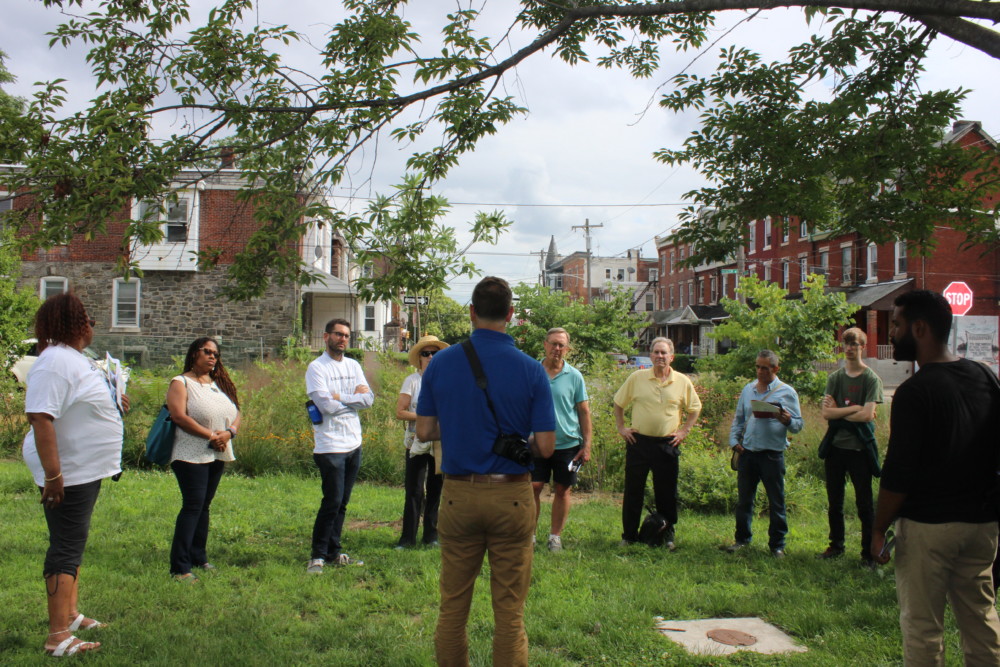
Overbrook Environmental Education Center
Next, we met at the Overbrook Environmental Education Center for refreshments, our panel discussion, and a tour. Its doors opened in 2006, but the roots of the center extend back to 1998. That’s when founder and executive director Jerome Shabazz started developing environmental and science education programs in schools, in an effort to get his teenage son more engaged in his classes. Eventually, Shabazz, a former PWD employee, decided to create a place in West Philly for young people to learn about and appreciate nature, and Overbrook was born.


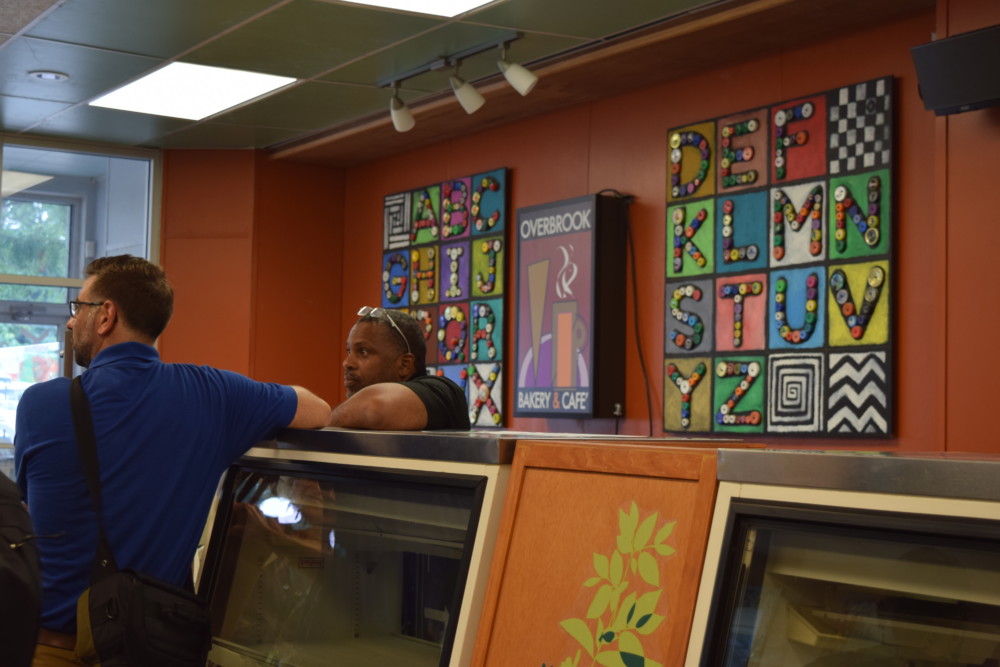

The center was previously a brownfield site. After calling in help from the Environmental Protection Agency, he was able to clear a vacant lot of nearly 20 tons of trash and begin the revitalization process. Now it holds stormwater facilities, a greenhouse, a garden, several murals, and a playground. The building, formerly a liquor store, is decked out in mosaics and houses plenty of space for community events and classes.
Shabazz also leads the Overbrook Youth Environmental Stewards. During the two-year program, high school students engage in hands-on environmental science classes, followed by job development and training, through presentations and outreach. As a clever reference to the program’s acronym, participating students break out in a mantra at any given moment: “O’YES!”
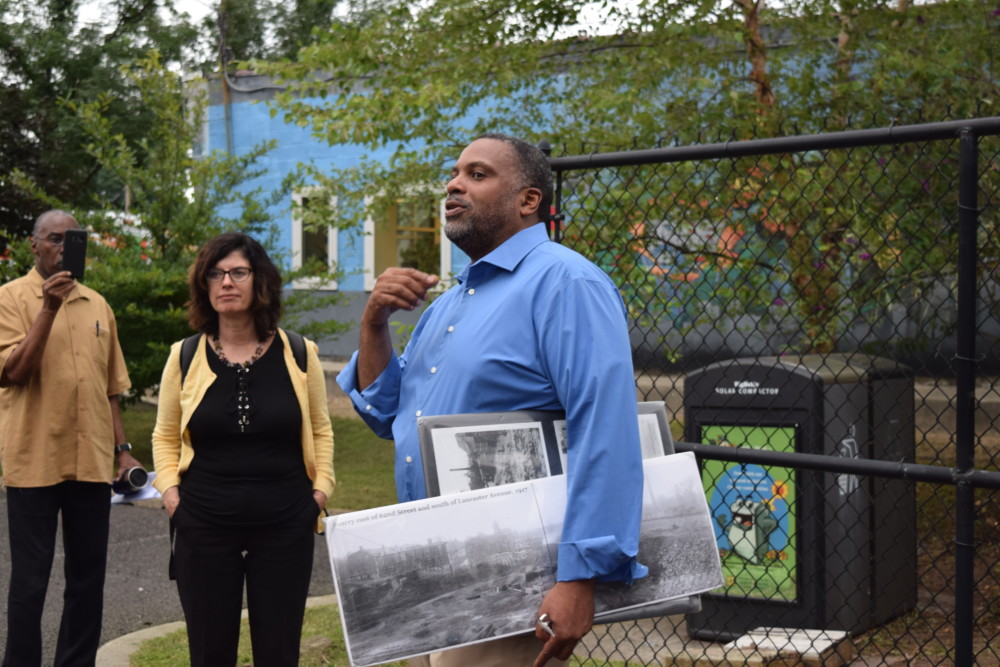
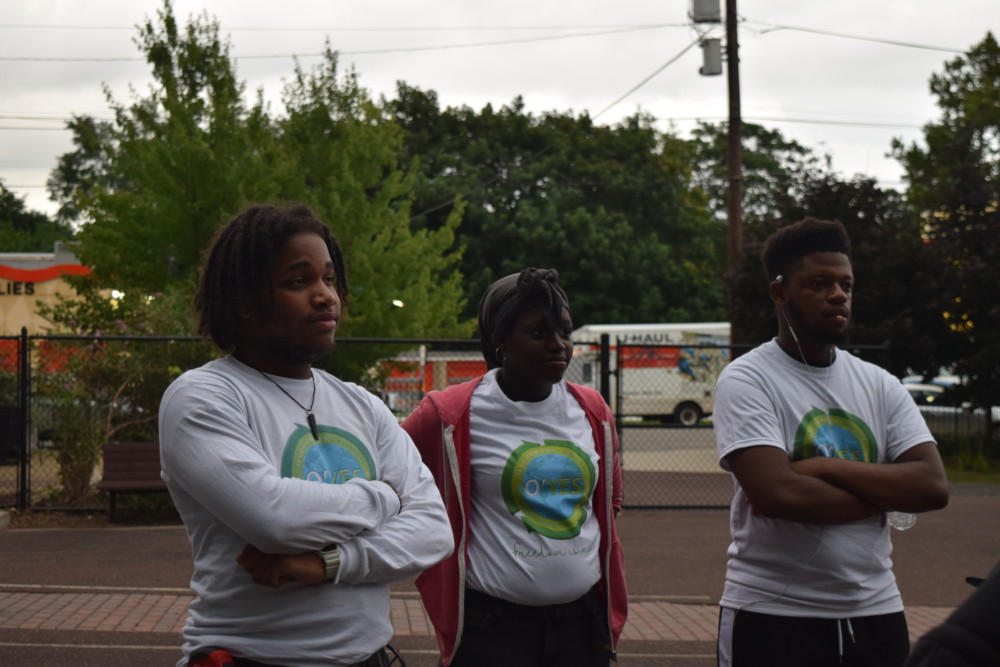
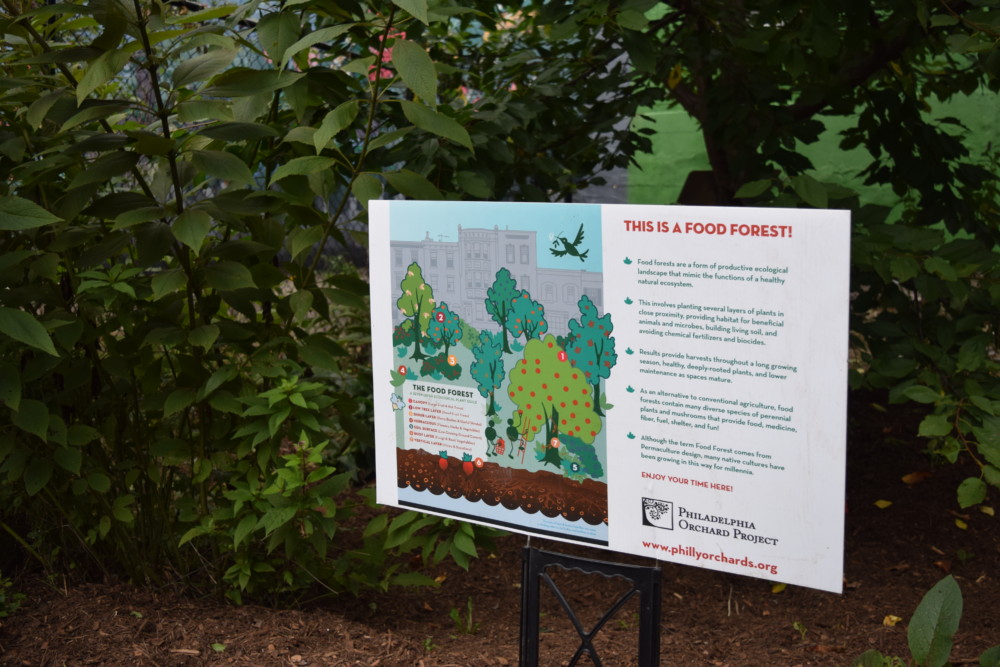
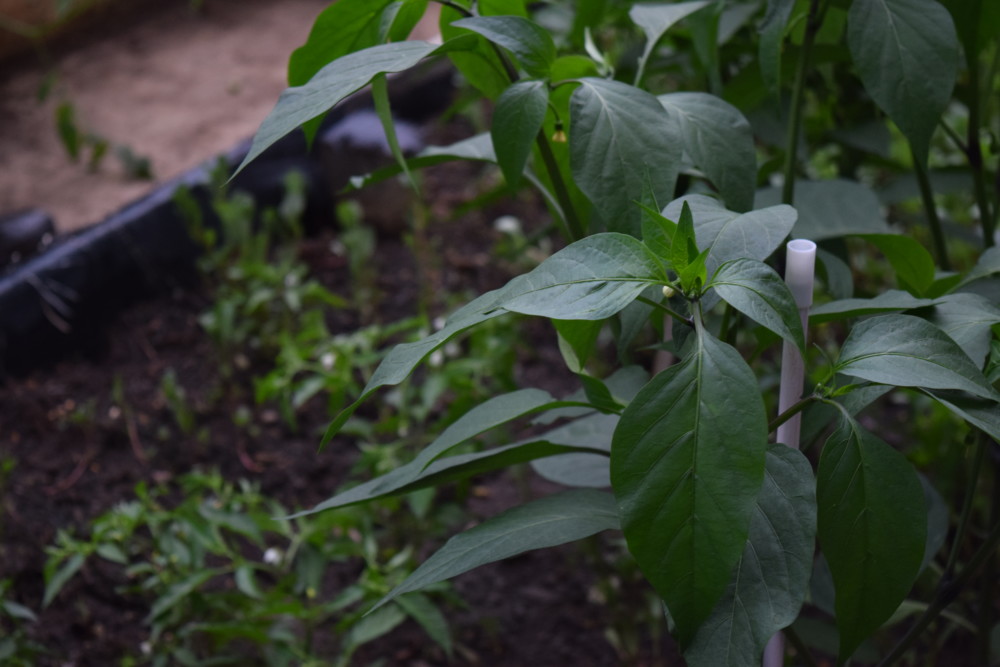
Green Job Roundtable: 3 Takeaways
Our expert panel included:
- Overbrook Environmental Education Center’s Jerome Shabazz
- PWD Outreach Specialist Dan Schupsky
- Joanne Douglas, director of Bartram’s Garden High School River Internship program and founding member of Encouraging Development of a Green Economy (EDGE)
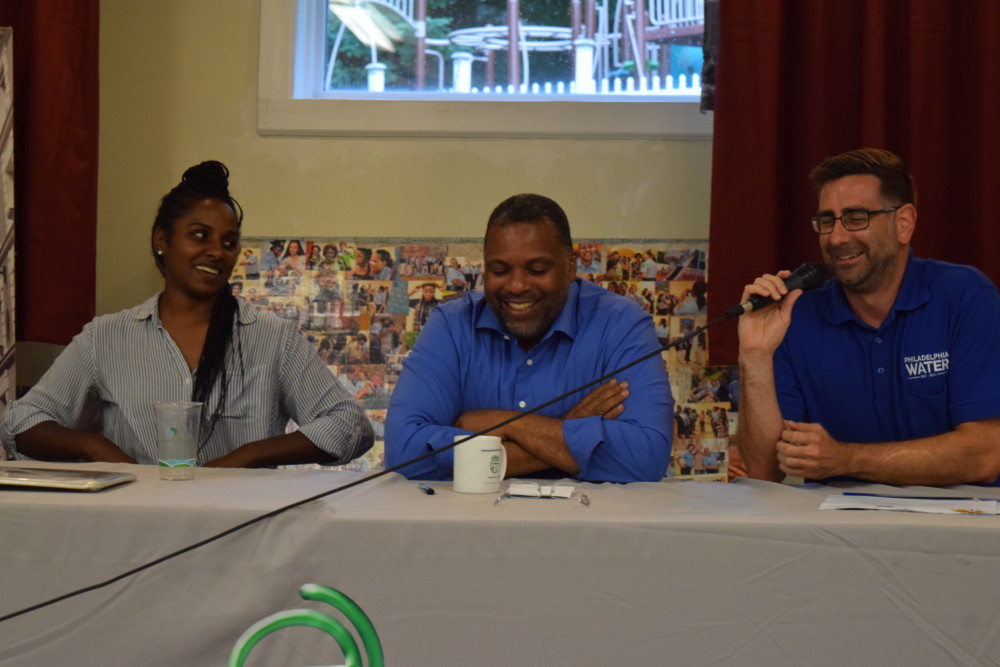
From left to right: Douglas, Shabazz, Shupsky
They spoke on everything from mobilizing communities to engaging young people and growing Philly’s green economy. We also invited attendees to throw questions their way at any point.
Here are some three highlights from our discussion:
- According to Schupsky, if sustainability experts and leaders want to engage people in low-income communities, they need to understand and appeal to those people’s difficult circumstances. In other words, the intricacies of GSI won’t interest someone who is “just trying to feed their kids.” Instead, provide economic opportunities that also inform.
- Shabazz acknowledged that sustainable spaces need to be made accessible to people who aren’t experts. If a workshop or roundtable is populated by engineers and politicians, someone without those credentials may feel too intimidated to attend. All information should be made simple and understandable, and all advertising should emphasize that everyone is welcome.
- As Douglas has learned, the best way to engage kids is to discover what their interests are and find where those passions can intersect with sustainability. With her river internship programs, she interviews each student to learn more about them and their goals so she can integrate them in the learning process. This may include letting someone interested in photography take pictures of the program or bring in a guest speaker for students interested in growing their own food. Not to mention, Douglas says, young people are usually more excited to learn than you might think.
Have FOMO? Don’t miss out on upcoming events: Sign up on our newsletter.
Thank you to Overbrook Center for hosting the event space, PWD for an informative tour and CUSP, for funding for this event.









